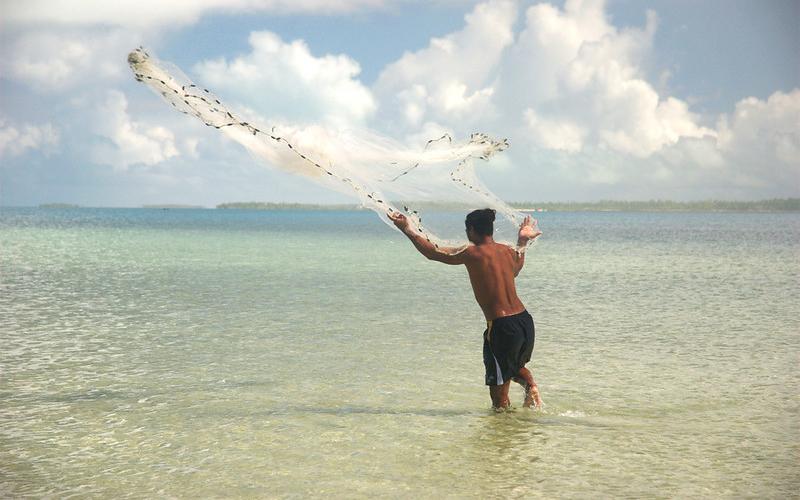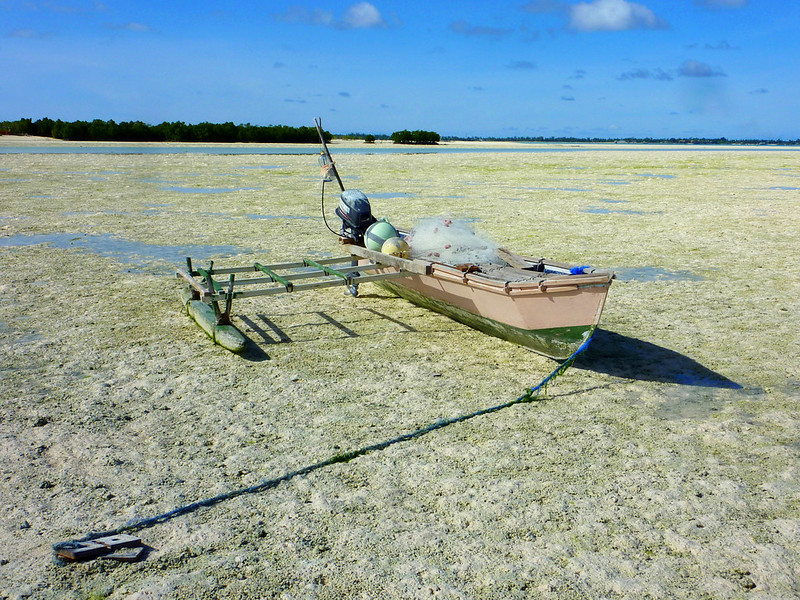
- The impacts of climate change will be felt most by countries the least responsible for greenhouse gas emissions
- Climate change threatens food security in low- and middle-income countries dependent on aquatic foods
- Capture fisheries and freshwater aquaculture are the most at-risk aquatic food systems
Billions of people in low- and middle-income countries could face heightened food, nutrition and economic insecurity because of the threat climate change poses to aquatic food systems, new research reveals.
A new paper, entitled ‘Compound climate risks threaten aquatic food system benefits,’ was one of five to be published as part of the Blue Food Assessment (BFA) in one of the most comprehensive reviews of the sector to date.
The authors warned that without actions to mitigate the effects of climate change, societies dependent on aquatic foods risk losing key contributions to livelihoods, health and nutrition.
“The impacts of climate change are more pronounced in developing countries in Africa, Asia, Latin America and the Pacific, which are home to the majority of people living in poverty with high dependency on aquatic foods - in local diets, livelihoods, economies and cultures. Failure to make sufficient investments to build the resilience of aquatic food systems in these regions means risking failure to achieve key sustainable development objectives,” said co-author Mike Phillips, WorldFish’s director of aquaculture and fisheries science for CGIAR Research Program on Fish Agri-Food Systems (FISH).
The paper concluded that capture fisheries – particularly in regions such as tropical Africa, Central America and the Indo-Pacific – face severe hazards from warming surface temperatures and more frequent extreme weather events.
“This is the first paper of its kind to assess the risks climate change poses to all aquatic foods, including freshwater and marine, aquaculture and wild-caught, which provide employment to more than 100 million people and sustenance for more than three billion people worldwide,” said Michelle Tigchelaar, co-lead author and researcher at the Center for Ocean Solutions, Stanford University.
Countries that have traditionally been high emitters of greenhouse gas emissions do not necessarily face the highest risk from climate change, creating a need for a shared responsibility across countries and regions for climate-proofing aquatic food systems, explained the authors.

Countries in Southeast Asia, the Indo-Pacific and Africa, which are largely dependent on aquatic foods for sustaining livelihoods and economies, are facing the “double jeopardy” of climate change adversely impacting a critical economic sector.
In a high-emissions scenario by 2050, the paper found more than 50 countries face the triple threat of high climate hazards, exposure and vulnerability.
In addition to recommending measures that enhance the climate resilience of aquatic food systems, the paper also highlights the need for transformative action to reduce climate vulnerability overall, including promoting gender equity, reducing poverty and strengthening governance systems.
“The study will be instrumental in informing investment and policy intervention points to mitigate the impacts of climate change and ensure aquatic food systems can continue to make significant contributions to food and nutritional security and overall sustainable development objectives,” said co-author Essam Yassin Mohammed, WorldFish’s global lead for climate resilience and environmental sustainability.
The paper highlights key vulnerabilities in aquatic food systems and provides an important evidence-based foundation for future actions, added Phillips, who leads the CGIAR Research Program on Fish Agri-Food Systems for WorldFish. The paper highlights the importance of collective action to boost resilience across all aquatic food systems to stave off the worst effects of climate change
“My hope is that the strong research partnerships brought to this unique assessment – including those of the CGIAR Research Program on Fish Agri-Food Systems - will be further strengthened with partners throughout Africa, Asia and the Pacific to take the policy and investment actions so necessary for addressing the challenge of climate change in our aquatic food system,” he said.
Read the Blue Food Assessment paper to learn more about the transformative actions needed to increase climate resilience in aquatic food systems.
The Blue Food Assessment (BFA) is an international joint initiative bringing together over 100 scientists from more than 25 institutions. Led by the Stockholm Resilience Centre at Stockholm University, Stanford University, and EAT, the Blue Food Assessment supports decision-makers in evaluating trade-offs and implementing solutions to build healthy, equitable and sustainable food systems. WorldFish has been a key research contributor to BFA, with seven of its scientists among the authors of the papers released today. WorldFish has guided the direction of the study through representation on the BFS Scientific Leadership Team by Eddie Allison, interim director of science and research, Shakuntala Thilsted, global lead for nutrition and public health, and Mike Phillips, director of aquaculture and fisheries science for CGIAR Research Program on Fish Agri-Food Systems (FISH).
